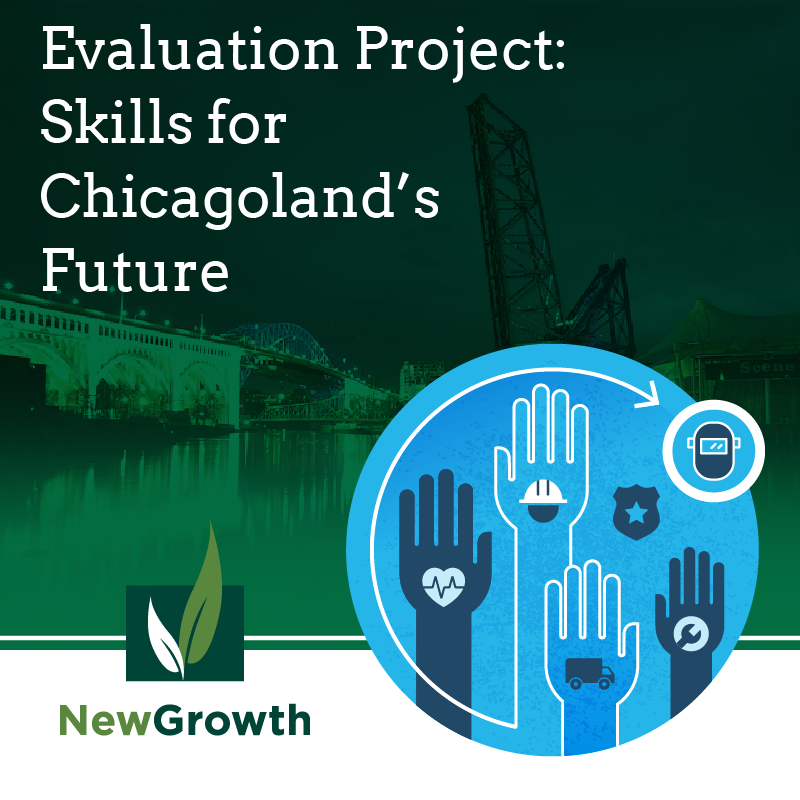New Growth just wrapped up work on an evaluation project for Skills for Chicagoland’s Future (Skills). Skills is a public-private partnership working to find jobs for unemployed and underemployed job seekers in the Chicago area. They have adopted a “demand driven” approach – working with businesses to determine their hiring needs and then finding qualified individuals to fill those jobs. Skills wanted to measure how well their model was working in the real world, so they hired New Growth to do an evaluation of the project.
The evaluation design was an interesting balancing act between the goals of the evaluation and the availability of data. A later blog post will go deeper into the details, but for now, let’s keep it simple and look at some of the results.
The 600 people who were placed by Skills between January of 2014 and June of 2015 and who had employment data available from Illinois’ state wage agency were collectively called the participants. As a group, the participants were about 60% female, 80% black or African American, over 60% of them had less than an Associate’s degree of education, almost 80% were 24 years old or younger, and the majority lived in low-income zip codes of the south and west sides of Chicago. Skills has set out to serve a relatively disadvantaged population, and the data shows that they do.
The participants were compared to a collection of individuals who were as similar as possible with respect to demographics and prior earnings history but had not been placed by Skills – the comparison group.
Participants were followed for 2 years after their placement by Skills. During that period, they earned $6,120 per year more than individuals in the comparison group, on average. And the third of participants who earned the least prior to placement saw the largest relative increase – they earned $9,640 per year more than those in the comparison group who were also low earners prior to the study. Importantly, over the 2 years of follow-up, there is no evidence of the positive effect decreasing.
The evaluation also considered employment retention. Consistent with the earnings story, participants saw higher rates of employment at 1 and 2 years post placement relative to the comparison group.
Lastly, Skills was able to provide their average cost of a placement. This allowed a return on investment (ROI) calculation. For 1 year’s worth of benefit, the ROI exceeds 75% and it exceeds 250% for 2 years’ worth of benefit.
An extensive final report for this project was just completed. An article was recently written about the evaluation by the Chicago Tribune. Skills has been announced as the leader of the national Skills for America’s Future initiative, and is planning its expansion. This workforce development model is on the move and New Growth is proud to have played a part in showing the impact that it can have.
Contact Chris Spence, Principal, to learn how New Growth can help your next evaluation project.

